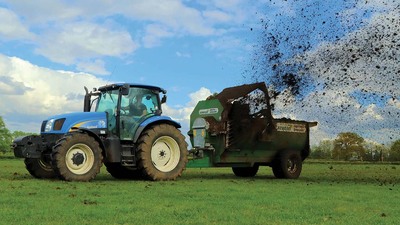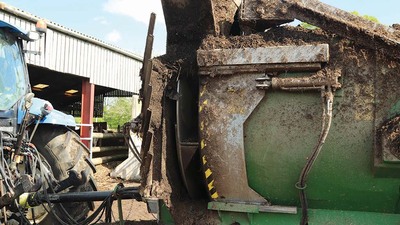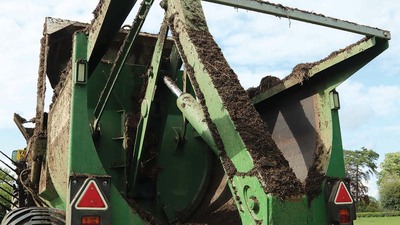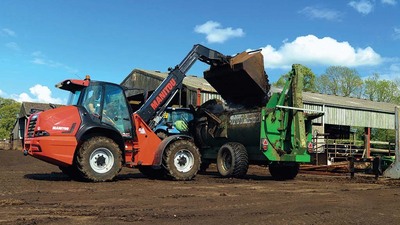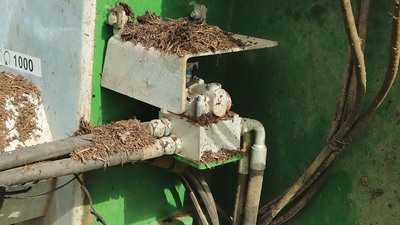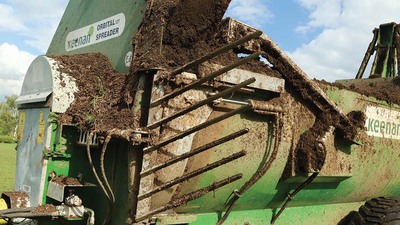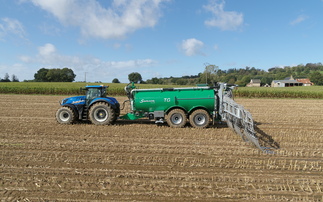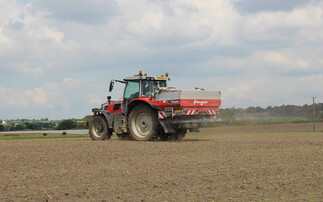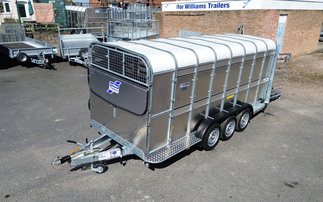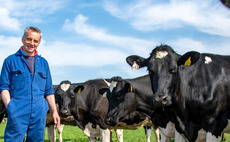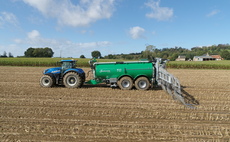
The Orbital spreader from Keenan may not be a familiar sight, but the novel application method is proving its worth for one beef farmer in Warwickshire. Alex Heath finds out more.
While rear discharge spreaders may be the fashionable for applying manure to fields, other spreader types still play a valuable role in providing much needed nutrients and organic matter to soils.
One of the lesser seen machines is Keenans Orbital spreader, but one has been the main stay on a Warwickshire farm since its inception. Farming 120 hectares on the outskirts of Rugby, Austin Welton first saw the spreader when it was launched at the Royal Show in the 1990s. Buying the machine on show, based on its principal, it has since been replaced by the newest model, after two decade worth of dung throwing graft.
The latest Orbital was purchased three years ago and has been busy working through the farms muck heap, contributed to by 300 head of fattening cattle, which are bedded on woodchip during the winter months and fed a TMR ration. Operating the spreader when we visited was Mr Weltons grandson Jack Cave.
Mr Welton says the spread pattern produced by the Orbital on his muck is fine and consistent. The Orbital has a fly wheel at the front of the machine, which shreds and propels the material across the field.
The orbital will throw the muck about 20 metres, he reports. It produces a very fine spread pattern, making it suitable for spreading on permanent pasture, without the fear of large lumps of muck not rotting down.
Woodchip bedding certainly helps with this, says Mr Welton, but muck with lots of straw in can pose a problem he says.
Its flywheel is 1.8m in diameter and features six paddles for propulsion, with intermediary blades fitted for shredding. The tractors pto is run at 1,000rpm with drive transfer to the spinning disc via a heavy duty chain and sprocket arrangement, stepping the flywheel speed down to 170rpm.
Power comes courtesy of a 115hp New Holland T6030, which provides ample power, says Mr Cave. However, one of the major differences between the Orbital and rear discharge machines is the direction in which the muck is pushed when unloading.
Unlike with machines with beaters at the rear and thus taking weight off the drawbar when spreading, the Orbital pushes the muck towards the tractor, taking weight off the implements wheels and transferring it to the tractor.
This, says Mr Welton, allows a smaller tractor to be used on the 12 tonne capacity machine, without worrying about the tractor being bossed about by the spreader.
He adds; A swing down door separates the load area from the flywheel during loading and transport, providing low start up torque.
Spreading rate is easily adjusted, says Mr Cave. A hydraulic valve on the side of the spreader controls how much oil is sent to the large ram at the rear of the machine, which pushes the muck forwards.
Loading is done with a Manitou MLA-T 533, although a tractor and loader can be used. Three of the pivot-steers buckets of muck are generally sufficient to fill the spreader, without it falling over the sides, or becoming over compacted which can become difficult to extract, he says.
He also notes that at under seven metres and weighing less than 5,500kg when empty, it is manoeuvrable and kind to the land, allowing a lighter tractor to be used, preserving the grassland and maize ground it spreads on.
But the defining feature of the spreader for Mr Welton is the fineness of its spread.This allows me to graze cattle earlier, knowing the muck has rotted down well, and given the pasture an even application of nutrients, concludes Mr Welton
